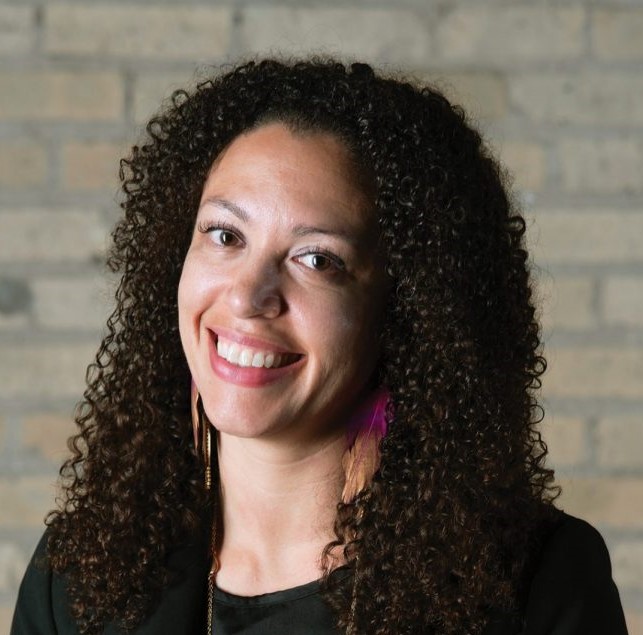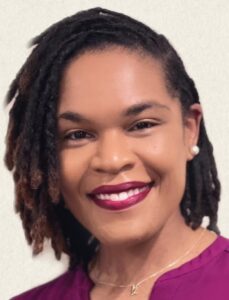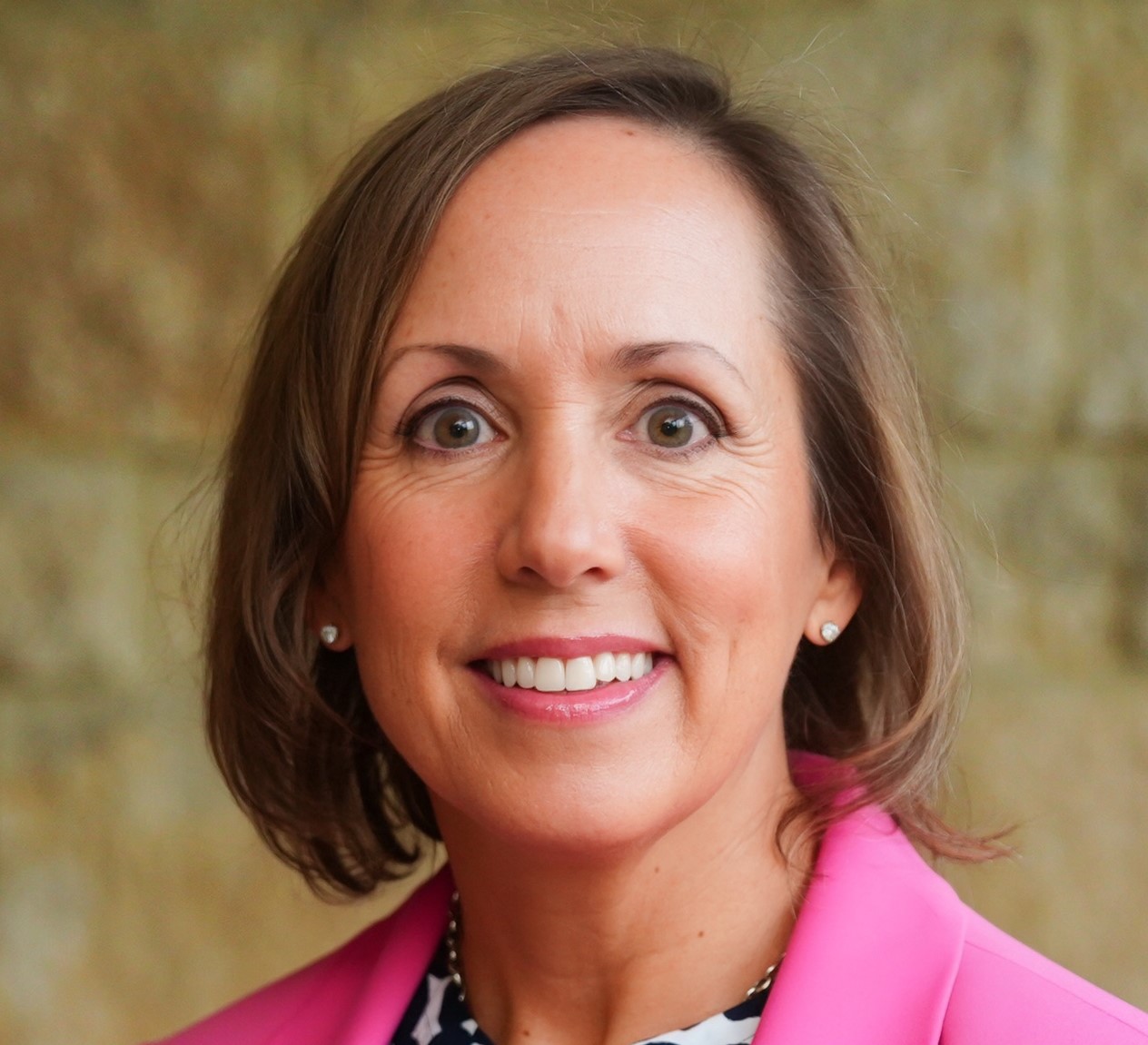Finalist Judges

Latoya Booker
Latoya serves as Director for the Inclusion & Equity Institute Learning and Development Program at Grand Valley State University where she works alongside internal and external partners to further personal and organizational transformation. As an administrator, educator, and consultant, she has over 15 years of success leading DEI initiatives within various organizations across multiple sectors. Latoya strives to generate positive change through human resources solutions, program development, and process improvements. She is an accomplished higher education professional with a track record of successfully translating strategic vision into initiatives that add value, improve performance, and advance equitable outcomes.
In 2020, she was named one of the Grand Rapids (Michigan) Business Journal’s 40 under 40 Business Leaders. She serves on the Create Great Leaders Council through the Grand Rapids Area Chamber of Commerce and as board president for Camp Blodgett. She studied secondary education (B.A.) and higher education administration (M.Ed.) at Grand Valley State University and earned a second bachelor’s degree in early childhood education from Aquinas College.

Kenlana Ferguson
Dr. Kenlana Ferguson is a licensed psychologist and the Director of Equity, Learning, and Culture at the Kalamazoo Community Foundation (KZCF). In this role, she is responsible for setting the strategy for learning, culture, and people in the organization with a key emphasis on goals of inclusion, belonging, racial equity, and justice. Since assuming this role, she has worked across the foundation to deepen a culture focused on learning, integration, and accountability in practice and policy toward KZCF’s mission of advancing racial, social, and economic justice. Before joining KZCF, she spent over a decade in higher education where she led institutional efforts to operationalize equity in mental health on college campuses.
Dr. Ferguson’s multilayered and successful approach to equity work led her to start her own consulting business in 2017, through which she guides organizations through assessing their organizational culture, policies, and practices for equity and facilitates training and team strategy building to advance diversity, equity, and inclusion within their organization. Dr. Ferguson earned a bachelor’s degree in criminal justice, a master’s degree in counseling psychology, and a Ph.D. in counseling psychology from Western Michigan University.

John Lafkas
John Lafkas is Senior Editor, Cases and Pedagogy at Harvard Business Publishing. He has co-authored several cases and was previously an instructor at The Wharton School at the University of Pennsylvania, where he received his M.A. in Management.

Heather McBride Leef
Heather is the Managing Director leading Deloitte’s Diversity, Equity, and Inclusion (DEI) Institute. Heather has a long-standing passion for equity and belonging and is committed to the collaboration and collective actions necessary to advance successful DEI efforts in the workforce, marketplace, and society. With more than 25 years of experience driving innovative strategic initiatives at Deloitte, Heather most recently served as a senior leader and executive coach with Deloitte’s Chief Executive Program, working closely with CEOs in a wide range of industries and DEI-focused organizations, helping them achieve their aspirations. Prior to the Chief Executive Program, Heather led Deloitte’s office of the CEO, serving as the chief of staff for Deloitte’s first woman CEO, Cathy Engelbert. As a strategic advisor to advance the CEO’s priorities, she collaborated with senior leaders across Deloitte and in external organizations. In that role, she contributed to the launch of Deloitte’s industry-leading family leave program, providing up to 16 weeks of paid leave. Heather received a BSBA with an accounting major from Bucknell University in Lewisburg, PA, and is a member of the AICPA and the Pennsylvania Institute of Certified Public Accountants. She received her Executive Coaching Certification from Columbia University and attended Rutgers University’s Senior Leadership Program for Professional Women. Heather is an Associate Certified Coach from the International Coaching Federation (ICF). In 2023, she received NABA INC’s prestigious Ally and Advocate of the Year President’s Award for her “outstanding leadership, unwavering dedication, and exceptional work ethic in championing diversity, equity, and inclusion (DEI) to create a more just world,” and was named to The Top Women Leaders of New Jersey for 2023 by Women We Admire. Thought leadership Heather has authored includes “Mental Health Starts at the Top” and “Uncovering culture.”

Greg Merkley
Greg Merkley is the Director of Case Publishing for the Kellogg School of Management at Northwestern University. He and his team have developed over 600 case studies, simulations, and technical notes used in over 1,300 institutions in more than 100 countries. He has also taught marketing and global management courses at Kellogg. Before joining Kellogg, Greg worked as a consultant, a corporate executive, and an entrepreneur. He earned a BA in Japanese Language and Literature from the University of California, Los Angeles, and later received his MBA from the Kellogg School of Management.
Judging Criteria
- Topic/Content
- The protagonist and/or the case dilemma is clearly focused on diversity, equity and inclusion (DEI).
- Content focuses on a business effort/challenge that is compelling and significant within the DEI space.
- Teaching/Learning Value
- Engages students into an active learning mode.
- Provides students opportunities to analyze/solve relevant, practical, and regional business issues related to DEI.
- Contains elements allowing students to exercise higher-order, complex thinking. Requires more than just comprehension and memory.
- Intro/Overview
- Sparks interest & curiosity of the reader, drawing them into the narrative.
- Clearly introduces the protagonist & organization/company.
- Clearly identifies the dilemma, its time frame, & its tension/urgency.
- Protagonist/Organization
- Protagonist & organization clearly identified in the case introduction.
- There are appropriate details about the protagonist, including their role in the organization, career history, etc.
- There are appropriate details about the organization or company such as mission, revenue, history, P&L statements, culture, geo locations, competitors, etc.
- Adequate context is provided for both the protagonist and organization, relative to the concept of the case.
- Dilemma
- Dilemma & time frame clearly identified in the case introduction, along with its urgency.
- Dilemma can realistically be solved by the protagonist.
- Dilemma has applicability beyond the immediate situation described in the case.
- Case specifies at least two questions that students need to address to solve the dilemma.
- Dilemma challenges students to analyze the situation & develop multiple, integrative solutions.
- Writing/Inclusive Case Design/Citations & Endnotes
- Documents are free from structural, grammatical, spelling, & typographical errors.
- Diversity & inclusiveness is reflected throughout individual case elements such as the protagonist, writing style, & language.
- Complete citations & endnotes are included for any quoted material such as facts, figures, & other data.
- Teaching Note
- Includes clear, measureable teaching objectives.
- Pedagogy identifies case audience, business disciplines, & prerequisite knowledge or courses.
- Assignment questions can be answered based on information provided in the case.
- Includes comprehensive answers to assignment questions, along with appropriate analysis.
- Includes explanations/sources for conceptual frameworks &/or business models students should use in their case analysis.
- Includes a teaching plan that suggests how to allocate time in-class for the case discussion.
Review and Judging Process
- First and second rounds of reviews will be double-blind, i.e., the reviewers will not know the identity of the submitting author(s), and vice versa.
- Finalist judging will be reverse single-blind, i.e., finalist judges will not know the identity of the submitting author(s), but authors will know the identity of the finalist judges, as they are featured above.
Previous Winners
2023:
- First Place: Diversity, Equity, and Inclusion Initiatives at Levi Strauss & Co.: Are They Enough?
- Second Place: Rhino Foods' People-Profit Dilemma: Inclusive Workforce Challenges and Opportunities
- Third Place: The Quest for Gender Pay Equity at Elemental Systems
- Honorable Mention: Breaking Bread: DEIB Challenges Impact a Peruvian Corporation's Potential
- Honorable Mention: Diversity on Screen: Allure Studios' Challenging Casting Decision (To be published Nov. 2023)
2022:
- First Place: Navigating SheaMoisture through a Racial Awakening: Cara Sabin’s Authentic Leadership
- Second Place: Perks or Rights? Accommodating Neurodiversity in the Unionized Workplace
- Third Place: How Can Shoppers Market Create an Inclusive Environment for Women of Color?
- Honorable Mention:Activision Blizzard, Inc.: Facing the Call of Duty with a Laser Focus on Women
- Honorable Mention: DEI at Dynamo Relations: The Challenges of Remaining an Inclusive Company
2021:
- First Place: Cyrus Mehri and the National Football League's Rooney Rule (2021)
- Second Place: Oiselle: How Does an Activist Brand Authentically Commit to Diversity, Equity, and Inclusion?
- Third Place: Does the U.S. Hospitality Market Offer Fertile Soil for Lemon Tree Hotels' Inclusive Business Model?
- Honorable Mention: Dr. Bonnie Henry: Contending with COVID-19 in Visible Minority Communities
Sponsors
Thank you for the support of our sponsors. Learn more about them here.

